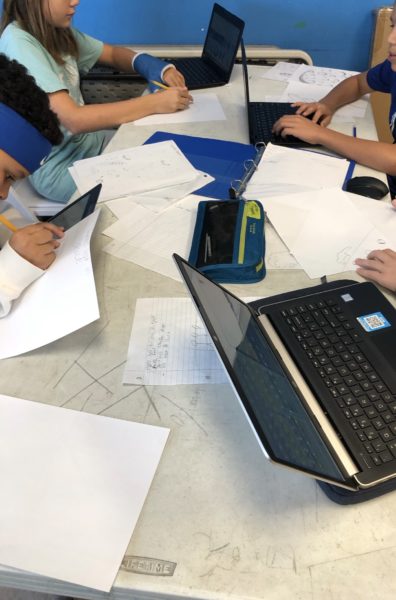
Brayden Harrington, a rising eighth grader, described himself as “just a regular kid.’’ Standing in front of a gray-brown desk in his own room, wearing a pale orange shirt with a blue whale on the pocket, he delivered what The Washington Post termed the “must-watch’’ speech of the Democratic National Convention.
Thirteen-year-old Brayden, speaking with a stutter, told the story of meeting presidential candidate Joe Biden in February at a New Hampshire campaign event. There, Biden invited him for a private chat about how the former vice president marked up texts to try to avoid his own stuttering in speeches.
No speech at a national party convention is without political purpose or resonance. Still, for those of us who stutter — “That was me at 13,” I told a friend — Braydon’s short speech evoked memories and emotions outside of the political realm.
My story is not notably distinctive or newsworthy. The National Institute on Deafness and Other Communication Disorders estimates that 3 million Americans stutter. “Boys are 2 to 3 times as likely to stutter as girls,” says NIDCD, “and as they get older this gender difference increases; the number of boys who continue to stutter is three to four times larger than the number of girls.”
As I have looked back in recent days on my own experience, I draw some lessons that may apply during and beyond our current public health, economic, and educational stresses. With the exceptions of my mother and father, I regret my memory no longer after half a century holds the names of the adults to whom I owe gratitude for helping me deal with life as a stutterer.
It was a male middle-school teacher who alerted my parents to a program at nearby Louisiana State University that offered therapy for young people like me with a pronounced stutter. Therapy, which continued through high school, addressed both neurological and psychological factors — blending techniques for easing into and through a “block” in pronouncing a letter, syllable, or word with efforts to lessen anxiety and build self-confidence.
My mother spent many hours listening to me read aloud from news magazines. And Baton Rouge merchants endured random phone calls from me practicing techniques by asking them such questions as the price of tires and tools.
In hindsight, I suspect my stuttering sessions may have contributed to faculty and graduate students’ academic papers. Those young therapists offered an early glimpse of the potency of a public university outside of a football stadium or basketball arena. That seventh grade teacher showed the importance of emphatic educators, counselors, and social workers who enrich students’ lives in ways beyond the test scores used to grade schools.
“Watching Brayden is a reminder of how our greatest source of shame can also be our greatest source of strength,” wrote Leana S. Wen, an emergency room physician and frequent cable TV commentator who has discussed her stuttering publicly. “Learning about his interaction with Biden, who has spoken openly about his own struggle with stuttering, shows what happens when our vulnerability is met with compassion and kindness. Regardless of our politics, I think we can all be inspired to show others that they belong, that they are worthy and that every voice matters.”
For me, speech therapy continued as I transitioned from high school to college. I had a summer job as an umpire for youth league baseball, putting me in daily conversations with parents as well as coaches and players. One evening, a parent pulled me aside after a game; he worked in the state vocational rehabilitation agency — and he told me I would qualify for a scholarship on one condition: that I would agree to speech therapy. The prospect seemed a win-win, and he guided me in applying.
Thus for two years at Loyola University, I hopped on the St. Charles Avenue streetcar to travel to meet with therapists in downtown New Orleans. The state of Louisiana — that is, its taxpayers — financed room, board and books, plus the therapy. For me, a government administrator of a social program made a difference.
Then as now, there is no cure for stuttering. While over my adult lifetime I grew more fluent and proficient in applying the treatment techniques, I still occasionally “block” on a troublesome first syllable of a word or name. Brayden Harrington’s touching moment served to remind me of how my own stuttering led to lessons in the life-enhancing capacity of teachers, university-trained academics and clinicians, and public servants.



